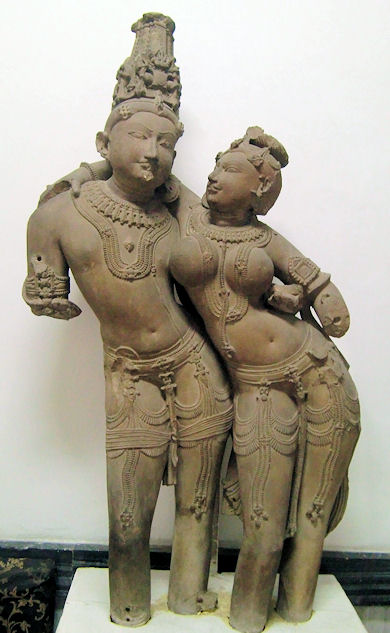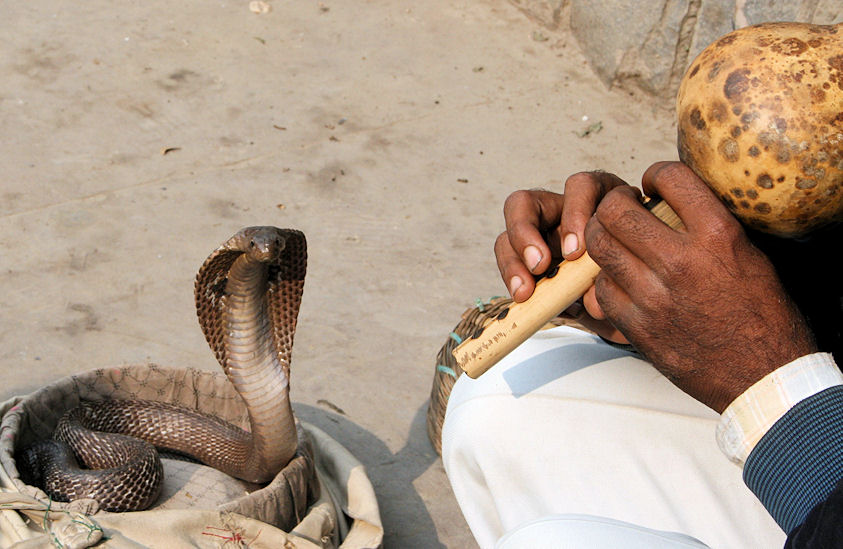

Mit den Auflösungen nach dem "Key" neu herausgegeben von Alois Payer
Zitierweise | cite as:
Apte, Vaman Shivaram <1858 - 1892>: The student's guide to Sanskrit Composition (Being a treatise on Sanskrit Syntax). -- 3. ed. -- 1890. -- 14. Lesson XIV. -- Fassung vom 2010-03-30. -- URL: http://www.payer.de/apte/apte14.htm
Ursprünglich erschienen als:
Apte, Vaman Shivaram <1858 - 1892>: The student's guide to Sanskrit composition : being a treatise on Sanskrit syntax ; for the use of schools and colleges. -- 3rd ed. -- Poona : R. A. Sagoon, 1890. -- 450 S.
A Key to Apte's Guide to Sanskrit composition : giving a close rendering into English and Sanskrit of all the Sanskrit and English sentences / compiled by an experienced graduate teacher. -- 2d ed. -- Bombay : Standard Pub., 1923. -- 136 p. ; 18 cm
Erstmals hier publiziert: 2010-03-30
Überarbeitungen:
©opyright: Public domain
Dieser Text ist Teil der Abteilung Sanskrit von Tüpfli's Global Village Library
Falls Sie die diakritischen Zeichen nicht dargestellt bekommen, installieren Sie eine Schrift mit Diakritika wie z.B. Tahoma.
Die Devanāgarī-Zeichen sind in Unicode kodiert. Sie benötigen also eine Unicode-Devanāgarī-Schrift.
Use of brackets:
<> = Apte`s own Notes (loc. cit. pp. 277ff.)
[] = A Key to Apte's Guide to Sanskrit composition : giving a close rendering into English and Sanskrit of all the Sanskrit and English sentences / compiled by an experienced graduate teacher. -- 2d ed. -- Bombay : Standard Pub., 1923. -- 136 p. ; 18 cm
{} = Notes by Alois Payer
§ 150. There are two kinds of past participles;
as, तेनेदमुक्तं 'this was said by him'; स इदमुक्तवान् 'he said this.' They are both used in the sense of the past tense. In later Sanskrit it became more usual to use participles than verbs. We generally find मया तत्कृतं or अहं तत्कृतवान् instead of अहं तदकरवम्, and many purposes of the predicate are served by this participle.
§ 151. Many intransitive verbs have past passive participles and they, as well as the past participles of transitive verbs used intransitively, are often used impersonally with an instrumental construction; as, प्रतिबुद्धमिदानीं मकरन्दपूर्णचन्द्रेण (Mālatīmādhava 4) 'the full-moon like Makaranda has now recovered his consciousness'; जितमपत्यस्नेहेन (Uttararāmacarita 7) 'victorious (all-powerful) is the affection for children.'
Obs. This kind of construction is not restricted to past participles alone; it occurs in the passive voice of verbal tenses also; as, मध्याह्ने ऽपि वनराजिषु आहिण्ड्यते (Śakuntalā 2) 'it is wandered (i. e. I wander) through rows of forests even at mid-day.'
आपदां कथितः पन्था इन्द्रियाणामसंयमः ।
तज्जयः संपदां मार्गो येनेष्टं तेन गम्यताम् ॥ (Cāṇakyaśataka 74)
'Non-restraint of the senses is regarded as the path to miseries; victory over them, as the road to riches (prosperity). Go by whatever way you please.'
§ 152.1 The past passive participle of
have an active sense; as, गतो ऽहं कलिंगान् (Daśakumāracarita II) 'I went to Kaliṅga'; जलं पातुं यमुनाकच्छमवतीर्णः (Pañcatantra I.1) 'he went down to the bank of the Jumna to drink'; लक्ष्मीमाश्लिष्टो हरिः (Siddhāntakaumudī) 'Hari embraced Lakṣmī;' शेषमधिशियितः 'sat on the serpent'; शिवमुपासितः 'served Śiva'; विश्वमनुजीर्णः 'grew old after the world'; उपरते भर्तरि (Kādambarī 173) 'the husband being dead'; so, वैकुंठमधिष्ठितः, हरिदिनमुपोषितः, वृक्षमारुढः, सुतो जातः &c.
1 गत्यर्थाकर्मकश्लिषशीङ्स्थासवजनरुहजीर्यतिभ्यश्च । (Pāṇini III.4.72) {'The affix 'kta' is employed in denoting the agent as well as the act and the object, after verbs implying motion, after intransitive roots, and after the verbs श्लिष् to embrace, शी to lie down, स्था to stand, आस् to sit, वस् to dwell, जन् to produce, रुह् to mount, and जॄ to grow old.' Transl. Vasu, 1891}

Abb.: लक्ष्मीमाश्लिष्टो
हरिः
11th century A.D.
[Source: Miya.m / Wikimedia commons. -- GNU FDLicense]

विष्णुः शेषमधिशियितः
c. 1870.
[Source: Wikipedia. -- Public domain]
§ 153.1 Past passive participles ending in त have sometimes the sense of neuter abstract nouns; as, जल्पितं 'speech', शयितं 'sleeping', हसितं 'laugh'; so, गतं, स्थितं, कस्येदमालिखितं 'whose is this picture?'
Obs. In such cases the forms lose their passive force, and are not used with the instrumental; as, 'her gait is graceful' तस्याः (not तया) गतं सविलासं; नृत्तादस्याः स्थितमतितरां कान्तं (Mālavikāgnimitra 2) 'her (motionless) posture is far more charming than her dancing.'
1 नपुंसके भावे क्तः । (Pāṇini III.3.114) {'The affix kta is added to the root, when action is expressed, the word being in the neuter gender.'}

Abb.: तस्या गतं सविलासम्
Near Hampi -
ಹಂಪೆ
[Source: Adam Jones, Ph.D.
--
http://www.flickr.com/photos/adam_jones/3774533682/. -- Downloaded on
2010-03-19. --
Creative Commons License (attribution, no commercial use)]
§ 154. The past passive participle of the roots मन् 'to think,' 'to wish'.' बुध् 'To know,' and पूज् 'to adore,' and others having the same signification, are used in the sense of the present tense, and are then construed with the Genitive. See § 115.
Obs. There are other words which are similarly used. They are given in the following verses: -
शीलितो रक्षितः क्षान्त आक्रुष्टो इत्यपि ।
रुष्टश्च रुषितश्चोभावभिव्याहृत इत्यपि ॥
हृष्टतुष्टौ तथा कान्तस्थथोभौ साम्यतोद्यतौ ॥
कष्टं भविष्यतीत्याहुरमृतः पूर्ववत्स्मृतः ॥ (Mahābhāṣya)
§ 155. There are three ways in which potential passive participles are formed in Sanskrit: -
by तव्य
by अनीय
and by य
(for the rules of formation vide Dr. Kielhorn's Grammar1 §§ 529-538); as, कर्तव्य, करणीय, and कार्य. They perform a very useful function in the economy of the Sanskrit tongue, and enable it to express in one word an idea which would require many words in English; as, 'he should be killed' = हंतव्यः. They denote that 'the action or the state expressed by the root or derivative base, must or ought to be done or undergone;' as, वक्तव्यं - वाच्यं - वचनीयं 'what ought to be said.' The sense thus conveyed by them is that of fitness, obligation or necessity; e.g., 'I have to go there' मया तत्र गन्तव्यं; 'I must do it' मया तत्कर्तव्यं.
{1 Kielhorn, Franz <1840-1908>: A grammar of the Sanskrit language. -- 3d ed., revised and enlarged -- Bombay, Government Central Book Depôt, 1888. -- xiv, 286 p. : 25 cm. -- Online: http://www.archive.org/details/agrammarsanskri00kielgoog. -- Accessed on 2010-03-11}
§ 156. These participles are used in sentences in the same way as the passive of the roots from which they are derived; as, मद्वचनात्स राजा त्वयेदं वाच्यः (Raghuvaṃśa XIV.61) ' the king should be told this in my behalf'; अजा ग्रामं नेतव्याः 'the sheep ought to be taken to the village;' so, असौ दुहितुः पत्या परिग्रहप्रियमस्माभिः श्रावयितव्यः (Śakuntalā 7) 'he should be made to hear the good fortune in the form of the of the acceptance of his daughter by the husband'. They are used with the Instrumental or Genitive of the agent of the action denoted by them; see § 107.
§ 157. The impersonal use of this participle is not very peculiar. It is used in the neuter gender singular, taking the place of the verb; as, अभिज्ञानशकुन्तलाख्येन नाटकेनोपस्थातव्यमस्मभिः (Śakuntalā 1) 'we must wait upon (the audience) with the drama (represent before them &c.)'; तत्रभवता तपोवनं गन्तव्यं (Vikramorvaśīya 5) 'his honour should go to a penance-grove.'
(a) The impersonal use of the forms भवितव्यं and भाव्यं deserves notice. They are used impersonally in their literal sense of 'being', or in the sense of 'must be', 'in all probability is,' showing some uncertainty, &c.; and in both cases the noun or adjective coming after 'be' must agree with the agent like an ordinary adjective; as, स्वेषु स्वेषु पाठेष्वसंमूढैर्भवितव्यं (युष्माभिः) (Vikramorvaśīya 1) 'you should be careful of your respective parts'; तथास्मिंल्लतामंडपे संनिहितया भवितव्यं (Śakuntalā 3) 'she must be (is most probably) present in this bower of creepers;' अस्य शब्दानुरूपेण प्राक्रमेण भाव्यं (भवितव्यं) (Pañcatantra I.1) 'his strength must (in all likelihood) be corresponding to his bellowing.'
(b) Sometimes the participle is used in the sense of the future with certainty; as, लुब्धकेन मृगमांसार्थिना गन्तव्यं (Hitopadeśa 1) 'the fowler is sure to go (will surely go) seeking after the deer's flesh'; ततस्तेनापि शब्दः कर्तव्यः (Hitopadeśa 3) 'then he also will surely make a noise.'
(c) Sometimes the potential passive participle merely denotes a future time; as, युवयोः पक्षबलेन मयापि सुखेन गन्तव्यं (Hitopadeśa 4) 'I, too, shall go at ease by the strength (support) of your wings'.
अत्रभवतोः परस्परेण ज्ञानसंघर्षो जातः । तदत्रभवत्या प्राश्निकपदमध्यासितव्यम् ॥१॥ (Mālavikāgnimitra 1)
<Notes: अत्रभवतोः of Haradatta and Gaṇadāsa. ज्ञानसंघर्षः 'a literary contest,' 'a contention for superiority in knowledge.'>
[Key: There was a contest for literary superiority between the two eminent preceptors. Therefore Your Ladyship should accept the post of (act as) an examiner.]
तयोर्बद्धयोः किंनिमित्तो ऽयं मोक्षः किं देव्या परिजनमतिक्रम्य भवान्संदिष्ट इत्येवमनया प्रष्टव्यम् ॥२॥ (Mālavikāgnimitra 4)
<Notes: Said by Agmimitra to Viduṣaka when the latter told him how he hade made Mādhavikā set at liberty the two girls, Mālavikā and Bakulāvalikā.>
[Key: Why were the two released after being confined and why were you entrusted with the message by the queen, leaving her attendants - this she should ask.]
विश्रान्तेन भवता ममाप्येकस्मिन्ननायासे कर्मणि सहायेन भवितव्यम् ॥३॥ (Śakuntalā 2)
[Key: अविद्यमान आयासः यस्मिन् ।
When you have taken rest you should become my helper in a business easy to be accomplished (lit. which will entail no trouble upon you).]
नास्मि भवत्योरीश्वरनियोगप्रत्यर्थी । स्मर्तव्यस्त्वयं जनः ॥४॥ (Vikramorvaśīya 2)
[Key: ईश्वरस्य नियोगस्तस्य प्रत्यर्थी । प्रतिकूलमर्थयितुं शीलमस्यासौ प्रत्यर्थी ।
I shall not come in the way of your masters order. This person, however, should be remembered by you.]
तत्किं मन्यसे राजपुत्रि मृषोद्यं तदिति । न हीदं सुक्षत्रिये ऽन्यथा मन्तव्यम् । भवितव्यमेव तेन ॥५॥ (Uttararāmacarita 4)
[Key: What doest thou think then, O princess, that those were false words, O thou of noble Kśatriya birth, do not think them to be otherwise. It (what Vasiṣṭha said) must come to pass.]
सर्वथा निष्प्रतीकारेयमापदुपस्थिता । किमिदानीं कर्तव्यं कां दिशं गन्तव्यमित्येते चान्ये च विषण्णहृदयस्य मे संकल्पाः प्रादुरासन् ॥६॥ (Kādambarī 157)
[Key: निर्गतः प्रतिकारो यस्याः सा । विषण्णं हृदयं यस्य तस्य ।
This calamity has come (befallen us) which is irremediable in every way (for which there is no remedy at all). What should be done now? What direction should be resorted to? These and such like thoughts crossed my mind.]
सततमतिगर्हितेनाक्र्त्येनापि परिरक्षणीयान्मन्यते सुहृदसून्साधवः । तदतिह्रेपणमकर्तव्यमप्येतदस्माकमवश्यकर्तव्यतामापतितम् ॥७॥ (Kādambarī 158)
<Notes: अवश्यकर्तव्यतामापतितं 'has become such as must be done,' has become an imperative necessity.>
[Key: न कृत्यमकृत्यम् । सुहृदः असवस्तान् ।
Good men think that the live of a friend should be saved even by an act exceedingly reprehensible. So it has become necessary for me to do this, although it is very shameful and unfit to be done.]
चाणक्यः - भद्र प्रथमं तावद्वध्यस्थानं गत्वा घातकाः सरोषं दक्षिणाक्षिसंकोचसंज्ञां ग्राहयितव्याः । तेषु गृहीतसंज्ञेषु भयापदेशादितस्ततः प्रद्रुतेषु शकटदासो वध्यस्थानादपनीय राक्षस प्रापयितव्यः ॥८॥ (Mudrārākṣasa 1)
<Notes: दक्षिनाक्षि &c. 'should be made to take the hint given by the contraction (winking) of the right eye;' you should wink at them in such a manner that they will at once understand what you mean.>
[Key: वध्यानां स्थानं वस्ह्यस्थानम् । रोषेण सहितं यथा तथा । दक्षिणमक्षि तस्य संकोचस्तेन संज्ञा ताम् । गृहीता संज्ञा यैः । भयस्यापदेशः ।
Cāṇakya - Friend, you should first go to the place of execution and make the executioners take (understand) a hint by contracting the right eye in anger; and when they understand the sign and run in all directions under the pretext of terror, Śakaṭadāsa should be removed from the place of destruction and taken to Rākṣasa.]
आः क्षुद्राः समरभीरवः । कथमेवं प्रलपतां वः सहस्रधा न दीर्णमनया जिह्वया ॥९॥ (Veṇīsaṃhāra 3)
[Key: समराद्भीरवः समरभीरवः ।
Ah you, mean wretches, that shrink from a fight, how is it that your tongue is not rifted into a thousand pieces when prattling thus.]
आपदि येनोपकृतं येन च
हसितं दशासु विषमासु ।
उपकृदपकृदपि च तयोर्यस्तं पुरुषं परं मन्ये ॥१०॥ (Pañcatantra I.15)
<Notes: 'I consider him to be the best man who respectively obliges and retaliates upon him who has helped and laughed at him in adversity.>
[Key: तयोः य उद्कृत् अपकृत् च तं पुरुषं &c. For translation see notes.]
आपन्नस्य विषयवासिनो जन्स्यार्तिहरेण राज्ञा भवितव्यमित्येष वो धर्मः ॥१॥ (Śakuntalā 3)
<Notes: 'The king should remove the afflictions of a person who is distressed and who dwells in his dominions.'>
[Key: विषये Country वस्तुं शीलं यस्य स विषयवासी तस्य । आर्तिं हरतीति आर्तिहारः तेन । आपन्नस्य आपत्तिं प्राप्तस्य in distress ; see notes. Such is your duty.]
अन्तरिते तस्मिञ्शबरसेनापतौ स जीर्णशबरस्तं वनस्पतिमामूलादपश्यत् । उत्क्रान्तमिव तस्मिन्क्षणे तदालोकभीतानां शुककुलानामसुभिः ॥२॥ (Kādambarī 33)
<Notes: उत्क्रान्तमिवासुभिः 'their life left them, as it were.'>
[Key: जीर्णश्चासौ शबरश्च । तस्यालोकस्तदालोकस्तेन भीतास्तेषाम् ।
When the leader of the party of Śabaras was out of sight that old Śabara surveyed the tree from its root. And at the very moment the lives of the families of parrots frightened at his sight left them as it were (seemed to pass away).]
अहं तच्छ्रुत्वा चेतस्यकरवम् । मयाधुना म्लेच्छजातिभिरपि दूरतः परिहृतप्रवेशं पक्कणं द्रष्टव्यम् । चाण्डालैः सहैकत्र स्थातव्यम् । चाण्डालबालकजनस्य च क्रीडनीयेन भवितव्यमिति ॥३॥ (Kādambarī 355)
[Key: म्लेच्छानां जातयः ताभिः परिहृतः प्रवेशः यस्मिन् । चाण्डालानां बालकजनः ।
Hearing that I thought to myself - Now I shall have to see the habitation of the Śabaras, entrance into which is avoided from a distance even by the Mleccha tribes, shall have to abide with the Cāṇḍālas and to be a playing (toy) of the children of the Cāṇḍālas.]
कार्यव्यग्रात्वान्मनसः प्रभूतत्वाच्च प्रणिधीनां को ऽयमिति विस्मृतम् । इदानीं स्मृतिरुपलब्धा । व्यक्तमाहितुण्डिकच्छद्मना कुसुमपुरादागतेन विराधगुप्तेन भवितव्यम् ॥४॥ (Mudrārākṣasa 2)
<Notes: Said by Rākṣasa, when he was told that a person desired to see him on urgent business.>
[Key: कार्ये कार्येण वा व्यग्रं तस्य भावः वयग्रत्वं तस्मात् । अहितुण्डेन जीवतीति आहितुण्डिकः तस्य छद्म यस्य तेन ।
On account of my mind being engrossed in business and the multiplicity of my emissaries, I have forgotten who he is. Now I have regained remembrance (remember who he is). Clearly he must bi Virādhagupta in the disguise of a serpent charmer, who has come from Kusumapura.]
{कुसुमपुरम् = पाटलिपुत्रम्}

Abb.:
व्यक्तमाहितुण्डिकच्छद्मना कुसुमपुरादागतेन
विराधगुप्तेन भवितव्यम् ॥
दिल्ली
[Source: Poco a poco / Wikipedia. --
GNU FDLicense]
आः दुरात्मन् कुरुकुलपांसुल एवमतिक्रान्तमर्यादे त्वयि निमित्तमात्रेण पाण्डवक्रोधेन भवितव्यम् ॥५॥ (Veṇīsaṃhāra 1)
<Notes: 'When you have thus completely filled the measure of your sins, the anger of the Pāṇḍavas will act only as a triffling cause to lead you to your doom.'>
[Key: कुरूणां कुलं कुरुकुलं तस्य पांसुलः । पांसवो दोषा अस्यास्तीति पांसुलः । तत्संबुद्धिः अतिक्राण्ता मर्यादा येन स तस्मिन् । निमितमेव निमित्तमात्रं तेन ।
Ah you, wicked soul, a disgrace to the race of Kuru, when you thus transgress the bounds of proper conduct, the wrath of the Pāṇḍavas will be merely the (apparent) cause (of your destruction, the real cause being your own sins,) See also notes.]
वत्से सांप्रतिकमेवैतत् । कर्तव्यानि दुःखितैर्दुःखनिर्वापणानि ।
पूरोत्पीडे
तडागस्य परिवाहः प्रतिक्रिया ।
शोकक्षो्भे च हृदयं प्रलापैरेव धार्यते ॥६॥ (Uttararāmacarita 3)
<Notes: c/d: 'A heart, agitated by grief, is eased (disburdened) only by lamentations.'>
[Key: Dear child, this is but natural (or proper). Those afflicted must allay their grief (by weeping).
पूरस्योत्पीडः पुरोत्पीडः तस्मिन् सति । शोकेन क्सोभो यस्य ।
For when a tank is overfilled with flood, a drain is the (only) remedy. Now. see notes.]
तेनाधीतं श्रुतं
तेन तेन सर्वमनुष्ठितम् ।
येनाशाः पृष्ठतः कृत्वा नैराश्यमवलम्बितम् ॥७॥ (Hitopadeśa 1)
<Notes: पृष्ठतः कृत्वा 'putting in the background,' repressing.>
[Key: He has studied, he has gained knowledge (lit heard); and he has done all that is to be done - by whom desire being left behind (repressed) absence of desire (निराशाया भावः) is resorted to.]
आरूढनद्रीनुदधीन्वितीर्णं भुजंगमानां वसतिं प्रविष्टम् ।
ऊर्ध्वं गतं यस्य न चानुबन्धि यशः परिच्छेत्तुमियत्तयालम् ॥८॥ (Raghuvaṃśa VI.77)
<Notes: These lines describe the fame of Raghu. अनुबन्ध् 'ever continuous', eternal. इयत्तया परिछत्तुं नालं 'cannot be circumscribed within any limits,' i. e. no determinate limit can be set to it.>
[Key: अनुबध्नातीत्यनुबन्धि । इदं परमाणमस्य इयत् तस्य भाव इयत्ता तया ।
Construe ऊर्ध्वं &c. - यस्य अनुबन्धि यशः इयत्तया परिच्छेत्तुं नालम् ।His fame, which has gone up to the mountains, descended to the seas, entered the (nether world) residence of the serpents and has found its way to heaven and which is continuous, is not being capable of being defined as of a particular measure (unbounded). See notes.]
अवसितं हसितं
प्रसितं मुदा विलसितं ह्रसितं स्मरभासितम् ।
न समदाः प्रमदा हतसंमदाः पुरहितं विहितं न समीहितम् ॥९॥ (Bhaṭṭikāvya X.6)
<Notes: हसितं मुदा प्रसितं 'laughter delightfully continued.' विलसितं etc. 'joyous sports, enlivened by love, decreased.' हतसंमदाः 'destitute of exhilaring passions.' पुरहितं etc. 'and what was beneficial to, and desired by, the town was not done.'>
[Key: स्मरेण भासितं, मदेन सहिताः समदाः । प्रकृष्टो मदो यासां ताः प्रमादाः ।
Construe - मुदा प्रसितं हसितमवसितं, स्मरभासितं विलसितं ह्रसितं, प्रमदा न समदाः किन्तु हतसंमदा आसन् समीहितं पुरहितं न विहितम् ।(All) laughing continued through joy ceased; joyous sports, enlivened by love, decreased; young women were not hilarious but devoid of exhilarating passion; the desired object of the city was not accomplished.]
शार्ङ्गरव त्वया मद्वचनात्स राजा शकुंतलां पुरस्कृत्य वक्तव्यः -
अस्मान्साधु
विचिन्त्य संयमधनानुच्चैःकुलं चात्मनस्
त्वय्यस्याः कथमप्यबान्धवकृतां स्नेहप्रवृत्तिं च ताम् ।
सामान्यप्रतिपत्तिपूर्वकमियं दारेषु दृश्या त्वया
भाग्यायात्तमतः परं न खलु तद्वाच्यं वधूबन्धुभिः ॥१०॥ (Śakuntalā 4)
<Notes: Said by Kaṇva, when sending Duṣyanta a message. संयमधनान् 'whose only wealth is their restraint of passions.' कथमप्यबान्धवकृतां 'not in any way brought about by her relatives.' 'She should be looked upon by you as one of your wives with a respect common to all. Further than this rests with fate; it should not be uttered (referred to) by the relatives of the bride.'>
[Key: Śārṅgarava, having presented (lit. placed in front) Śakuntalā, the king should thus be addressed by you, in my name.
संयम एव धनं येषां तान् । उच्चैः कुलं उच्चैःकुलम् । बान्धवैः कृता बान्धवकृता न बान्धवकृता अबन्धवकृता ताम् । स्नेहस्य प्रवृत्तिः ताम् । सामान्या चासौ प्रतिपत्तिः सामान्यप्रतिपत्तिः सा पूर्वा यस्मिन्कर्मणि तद्यथा तथा ।
Having considered us well, rich in self-control (penance), as well as thy exalted race, and that flow of affection (of her) towards thee not in any way brought about by relatives, she should be admitted by thee as one of thy wives with respect (प्रति°) common to all; &c. See notes.]
|
|
|
|
from the 1914 Berkeley production of Śakuntalā. Courtesy of University Archives, The Bancroft Library, University of California, Berkeley Source: http://illuminations.berkeley.edu/archives/2005/history.php?volume=9. -- Accessed on 2010-03-25. -- Fair use. |
|
त्वमर्हताम्
प्राग्रसरः स्मृतो
ऽसि
नः शकुन्तला मूर्तिमती च सत्क्रिया ।
समानयंस्तुल्यगुणं वधूवरं चिरस्य वाच्यं न गतः प्रजापतिः ॥११॥ (Śakuntalā 5)
[Key: प्रकर्षेणाग्रे सरतीति प्राग्रसरः a leader. तुल्या गुणा यस्य ; वधूश्च वरश्च वधूवरं Samāhāra Dvandva.
Thou art known (regarded) by us the chief of the worthy, and Śakuntalā is good conduct (virtue) incarnate. Brahmā, having brought together a bride and a bridegroom of equal merit, has after a long (i.e. now for the first) time incurred no blame.]
All translations from the Key.
N. B. Use participles for the words italicized.
1. Kārtikeya defeated Tāraka though he was guarded by strong armies.
कार्तिकेयो बलवतीभिः सेनाभिः परिरक्षितमपि तारकं पराजितवान् पराभूतवन् वा ॥१॥
2. Dear child, in doing this you have offended (राध् with अप) Jāmadagnya, and not done him any good (कृ with उप).
वत्सैतत्कुर्वता त्वया जामदग्न्ये ऽपराद्धं न च तस्मिन्किंचिदप्युपकृतम् ॥२॥
3.His army being completely defeated by the enemy, some of his soldiers mounted (रुह् with अधि) hills, some descended to seas, while others entered (विश्) solitary caves.
शत्रुणा सर्वथा भग्ने सैन्ये केचिद्योधाः प्रत्यन्तपर्वतानारूढाः केचित्समुद्रमवतीर्णा अपरे विविक्तान्कन्दरान्प्रविष्टाः ॥३॥
4. Who may this man be, that calls me by my name ? Oh yes, he is most probably my old friend, Mitravarman.
को ऽयं जनो भवेद्यो मां नाम्नाह्वयति । आं ज्ञातमनेन मम प्रातबसुहृदा मित्रवर्मणा भवितव्यम् ॥४॥
5. Wait for me a little; I, too, have to be present at the meeting.
प्रतिपालय मां किंचित् । मयापि तत्संसदि संनिहितेन भवितव्यम् or उपस्थातव्यमेव ॥५॥
6. As soon as he gets up, instead of beginning his studies he goes out to play.
स प्रबुद्ध एवाध्ययन आरब्धव्ये क्रीडितुं निर्गच्छति ॥६॥
7. Do not give way to sorrow; your child must have by this time come home directly.
शुचो वशं मा गाः or शोकाधीनो मा भव । सुव्यक्तमनेन समयेन तव बालकेन गृहमागतेन भवितव्यम् ॥७॥
8. I have wandered (भ्रम्) over several countries, suffering many difficulties, but have not obtained (लभ् or आसद् caus.) my desired object.
बहून्क्लेशान् or बहूनि संकटानि अनुभाविता मयानेकेषु देशेषु भ्रान्तं - अनेकदेशा भ्रान्ताः ॥८॥
9. He appears to be bent on ruining you, but I tell you he is sure to be defeated in his attempts.
स तव विनाशयोद्यतो दृश्यते किंतु कथयामि तुभ्यं तेन विफल - मोघ - प्रयत्नेन भाव्यम् ॥९॥
10. How should he sustain his life in that country if you were not to assist him?
कथम् तेन तस्मिन्देशे जीवितव्यं or जीवितं धारयितव्यं यदि भवांस्तस्य साहाव्यं न कुर्यात् ॥१०॥
11. These things should be taken (प्रापय्) by you to the owner of that large palace.
एतानि वस्तूनि त्वया तस्य महतः प्रासादस्याधिपतिं प्रापयितव्यानि ॥११॥
12. I have yet to read (वाचय्) many books ; so I shall not be able to accompany you.
मयाद्यापि बहूनि पुस्तकानि वाचयितव्यान्यन्यतस्त्वया सहागन्तुं न समर्थो ऽस्मि ॥१२॥

Abb.: मया बहूनि पुस्तकानि वाचयितव्यानि ॥
मम गृहम्, ओफ्टेर्दिङ्गेन्-ग्रामे, जर्मनीदेशे
[Photo: A. Payer, 2010. --
Creative Commons
License (attribution, no commercial use, share alike)]
13. This great reward indicates that the ring must have been greatly liked (मन्) by the king.
एतन्मह्त्पारितोषकमेव कथयति तेनाङ्हुलीयकेन राज्ञो बहुमतेन भवितव्यमिति ॥१३॥
14. Nothing is difficult to be accomplished (दुःसाध्य) by wise men.
नास्ति महात्मनां दुःसाध्यं नाम ॥१४॥
15. Since he had much wealth, he must have had many wives.
बहुधन्त्वाद्बहुपत्नीकेन तेन भवितव्यम् ॥१५॥

Abb.: बहुधन्त्वाद्बहुपत्नीकेन तेन भवितव्यम् ॥
16./17. century A.D.
16. How long should we remain with our armies ready for battle?
युद्धाय सन्नद्ध - सज्जित - सैन्यैः कियच्चिरमस्माभिः स्थातव्यम् ॥१६॥
To Lesson XV.